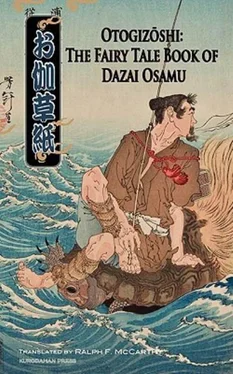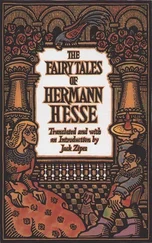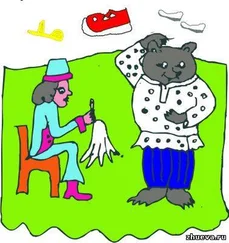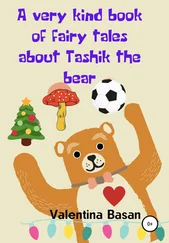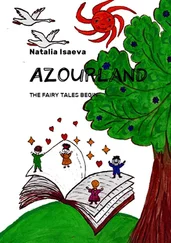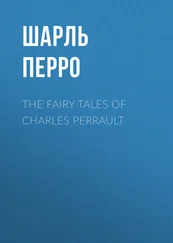It isn’t until moments before his death that the tanuki sees through the rabbit’s evil scheme, by which time of course it’s too late. The merciless oar comes down on his head with a thwack, and then with another thwack. The surface of the lake glitters in the setting sun, and his head appears there as he comes up for air, disappears as he sinks again, then reappears as he bobs back up. “Owww! How could you? What did I ever do to hurt you? Was loving you a sin?” Those are his last words before he goes down for good.
The rabbit wipes her brow and says, “Phew. I’m perspiring.”
So, is this an admonition against lust? Or is it a satiric tale with a hint of friendly advice against getting involved with sixteen-year-old maidens? Or is it, rather, a sort of textbook of courting etiquette, teaching that it’s best to exercise moderation in wooing your dream girl, no matter how smitten you might be, in order to avoid earning her hatred and possibly even getting yourself murdered?
Or maybe it’s not about right and wrong at all but simply a humorous story suggesting that in our daily lives the people of this world abuse one another, punish one another, praise one another, and serve one another all on the basis of feelings-their likes and dislikes.
No, no, no. There’s no need to scramble for any such literary critical conclusion. We need only take heed of the tanuki’s dying words. To wit: “Was loving you a sin?”
It is hardly an exaggeration to say that all the tragedies of world literature have this question as their subject. Inside every woman is a merciless bunny, and inside every man a virtuous tanuki who’s forever floundering as he tries to keep his head above water. The author, in light of his own thirty-odd years of a remarkably unsuccessful career, can tell you unequivocally that this is true. Perhaps you’ve noticed the same thing. That’s all for now.
The Sparrow Who Lost Her Tongue
I’ve been writing these fairy tales little by little in what spare time I’ve had, what with being mobilized for civilian duty and dealing with the post-bombing remains of my house and what have you, and despite a persistent fever, hoping only that they might prove a mild diversion suitable for any moments of leisure afforded those fighting courageously to help Nippon through her national crisis. My intention was to follow up “The Stolen Wen,” “Urashima-san,” and “Click-Clack Mountain” with “Momotaro” and “The Sparrow Who Lost Her Tongue,” and then to bring my fairy tale book to a close.
The tale of Momotaro, however, has undergone a process of such simplification, the hero himself made into such an idealized symbol of the Japanese male, that it has more of the flavor of a poem or ballad than a story. I was, of course, going to recast the yarn, making it my own. In particular, I intended to portray the Oni of Ogre Island as utterly depraved and despicable characters, genuinely worthy of our hatred. I would have shown them to be a race capable of such unutterably monstrous atrocities that subjugating them was simply the only option left to mankind. In doing so, I would evoke in readers so much sympathy with Momotaro and his mission that they would be biting their nails as I unrolled a stirring description of the battle itself-a touch-and-go, breathtakingly suspenseful affair.
(When describing their plans for unwritten works, authors are prone to naïve exaggeration. Everyone knows it’s not that easy. But let it go. It’s all just hot air anyway. Stifle the jeers and hear me out.)
In Greek mythology, the most repellent, perverse, and disgusting monster of all was snake-haired Medusa. Wrinkles of deep distrust creased her brow; the brutish embers of murderous intent glowed in her small gray eyes; her pale cheeks twitched with menacing fury; and her dark, thin lips twisted with loathing and scorn. And, yes, each long strand of her hair was a separate, live, red-bellied, poisonous snake. Emitting a horrible hissing sound, these numberless snakes would rear their heads as one to face any enemy. One glance at Medusa and an unsuspecting man would suddenly begin to feel ill; before he knew it, his heart would freeze solid and his entire body would turn literally to cold stone. Medusa wasn’t terrifying so much as skin-crawlingly creepy. The worst part was not what she did to the flesh but to the heart and mind. A monster like this deserves mankind’s most righteous hatred and must be exterminated with all due haste. Compared to her, our monsters in Japan are innocent and even endearingly charming creatures. The Onyudo, with his telescoping neck, or the one-footed umbrella goblin, for example-they rarely do any harm but tend merely to ease the tedium of a drunkard’s wee hours by performing artless dances in dark old temples. As for the inhabitants of Ogre Island, they’re physically large enough, according to the picture books, and yet when a monkey scratches one on the nose, for example, the victim lets out a squawk, topples over, and surrenders.
There’s nothing the least bit scary about the Oni in “Momotaro.” They even seem like fairly nice chaps, all in all, which rather takes the air out of the whole subjugate-the-ogres storyline. What one needs are monsters who inspire even more revulsion than the head of Medusa. Without such antagonists, one can hardly expect readers to be biting their nails. And then there’s the fact that the conquering hero, Momotaro himself, is so overwhelmingly strong that the reader at times feels almost sorry for the ogres and experiences none of the thrill of the hair’s-breadth escape. Even the illustrious hero Siegfried had that vulnerable spot on his shoulder, didn’t he? And they say that Benkei too had his Achilles’ heel. In any case, a completely invincible hero just isn’t good story material.
Further complicating the matter is that, while I presume to understand to some extent the psychology of the weak, perhaps because I’m a helpless sort myself, I’m afraid I don’t really have a clear understanding of the psychology of the powerful-particularly the absolutely invincible variety, which I’ve never met or even known to exist. I’m a story writer with such feeble imaginative powers that unless I myself have experienced something, I can’t write a line-can’t write a word-about it. It would have been impossible for me to describe Momotaro as one of those invincible heroes I’ve never seen. My Momotaro would have been a crybaby as a child, a weak, timid, and basically useless young man who, after running up against merciless and incomparably foul ogres who destroy human hearts and souls and drive people into hells of eternal hopelessness and horror and resentment, realizes that, weakling though he may be, he cannot back down from this fight. Taking, therefore, a truly courageous stand, he sets out for the Oni’s island lair with a sack of millet dumplings tied to his waist.
Such would have been my plotline, I imagine. As for Momotaro’s three vassals-the dog, the monkey, and the pheasant-they were not to be the typical faithful, exemplary sidekicks but rather individuals with uniquely problematic character flaws that would have inevitably led to the occasional squabble. I imagine they might have turned out somewhat like Monkey, Pigsy, and Sandy in the Chinese epic Journey to the West . But when I finished “Click-Clack Mountain” and was about to begin “My Momotaro,” a sudden and terrible gloom descended upon me. Isn’t it best to leave at least “Momotaro” alone, to let it remain in its current simplifed form? It’s a national poem, a song that has been passed down through the ages, touching all Japanese. It doesn’t matter if the plot is full of holes and contradictions. To tamper with the plain and straightforward nature of this big-hearted poem would be a disservice to Japan in a difficult time. Momotaro, after all, carries the banner that reads Nippon-ichi -Number One in Japan. An author who has never been number one in Japan-or even number two or three-can hardly be expected to produce an adequate picture of Japan’s foremost young man. The moment his “Nippon-ichi” banner came to mind, I gallantly abandoned all plans for “My Momotaro.”
Читать дальше
